News
Regulation News
Regulation News
Browse all Regulation related articles and news. The latest news, analysis, and insights on Regulation.
Multi-Altcoin ETF Receives SEC Approval: Launch on Hold
The U.S. Securities and Exchange Commission (SEC) approved the expedited conversion of Bitwise's 10-asset crypto index fund to an exchange-traded fund (ETF). However, in an unexpected move, the ETF's launch was halted following a regulatory decision made the same day. This sparked confusion and backlash among both investors and market analysts.According to the SEC's statement, the approved ETF will track the Bitwise Crypto Index. The index's current allocation includes major cryptocurrencies such as Bitcoin (78.72%), Ethereum (11.10%), and XRP (4.97%), as well as altcoins such as Solana, Cardano, Chainlink, SUI, Avalanche, Litecoin, and Polkadot. Crypto asset custody will be provided by Coinbase Custody, while cash management and administrative duties will be handled by BNY Mellon. According to SEC regulations, at least 85% of the fund must consist of cryptocurrencies currently approved for ETFs. Bitcoin and Ethereum are the leading assets that meet this requirement. The remaining 15% consists of coins that have not yet been approved for ETFs, such as XRP and Solana. The fund will rebalance monthly, adjusting its allocation based on index updates.The Bitwise ETF will operate similarly to traditional ETFs, as it is designed to issue and redeem shares in large blocks called "Creation Units."Unexpected hold: Launch suspendedDespite all these developments, the SEC issued a stay order halting the ETF's official launch. Based on the SEC's Rule 431(e), the fund's launch has been postponed indefinitely. As previously reported, this decision was similarly applied to Grayscale's large-cap crypto ETF. ETF Store President Nate Geraci, in a statement on social media platform X, called this decision "bizarre," stating that the SEC's initial approval and subsequent suspension of the launch created significant uncertainty for investors. "This delay clearly contradicts the approval given," Geraci said. "Products like Bitwise and Grayscale need to begin trading as soon as possible." According to Bloomberg ETF analyst James Seyffart, the SEC's sudden move may be part of a larger strategy. Seyffart suggested that the agency is attempting to delay the listing of such index funds on the exchange until its overall crypto ETF policy is clarified. Indeed, the SEC still hasn't finalized its decision on whether XRP, Solana, and similar assets are securities.The SEC's decision to curb ETFs hasn't halted the altcoin market. Over the past 30 days, Bitcoin's market dominance has declined from 65% to 60%, while altcoins like Ethereum, Dogecoin, XRP, and Cardano have seen some gains. The Bitwise ETF is currently only traded on the OTC (over-the-counter) market. However, if the SEC's decision is reversed, the fund could be listed on a national exchange, reaching a much broader investor base. This would create a new crypto investment vehicle for both individual and institutional investors.But for now, the situation remains this: While the Bitwise ETF has technically received approval, the launch has yet to be finalized.

US Banking Industry Opposes Crypto Bank Licenses: Are Ripple and Circle in Danger?
The United States' largest banking groups have called on the country's financial regulator, the Office of the Comptroller of the Currency (OCC), to suspend applications for national bank licenses by crypto companies like Ripple and Circle. The reasoning is clear: These applications could trigger a "fundamental policy change" in the current legal framework.Traditional banks oppose crypto bank licensesA joint letter signed by five major organizations -the American Bankers Association, Credit Unions of America, the Consumer Bankers Association, and the Independent Community Bankers Association- emphasized that the OCC should provide more information to the public before granting such licenses. The letter alleges that the business models offered by Ripple and Circle do not meet the "custodial activities" that national trust banks are legally required to perform. In particular, Circle's plans to manage USDC reserves and institutional crypto asset custody, as well as Ripple's applications to comply with regulation for its new stablecoin services, have raised serious concerns in the traditional banking sector. Concerns about a potential "back door" in the banking systemAnother noteworthy point in the letter is that granting bank licenses to crypto companies in areas where they have no or secondary trust activity could contradict the OCC's past practices. It warns that if this is allowed, other companies could follow suit and obtain "de facto" bank licenses, creating regulatory gaps.It states that such a move could lead to the emergence of a new breed of financial actors, with the same privileges as traditional banks but operating under significantly less capital requirements and regulation.Caitlin Long and Paradigm react: "They're afraid of competition"Caitlin Long, founder of crypto-focused Custodia Bank, interpreted the developments as "clear resistance from the banking lobby" and suggested that the matter would likely be taken to the courts. According to Long, if licensing comes with such a low capital requirement, why shouldn't traditional banks also transform into trust companies and continue their operations? Paradigm's public policy director, Alexander Grieve, made a similar comment: "Banks and credit unions rarely see eye to eye on anything. But when real competition comes from the crypto sector, they manage to unite." Meanwhile, according to attorney Logan Payne of the law firm Winston & Strawn, the recently passed GENIUS law has increased the incentive for stablecoin issuers to seek bank licenses. While the new law only allows for stablecoin issuance, these companies have a much broader scope of operations in real life. Obtaining a national trust bank license could make it easier for them to pursue these activities.
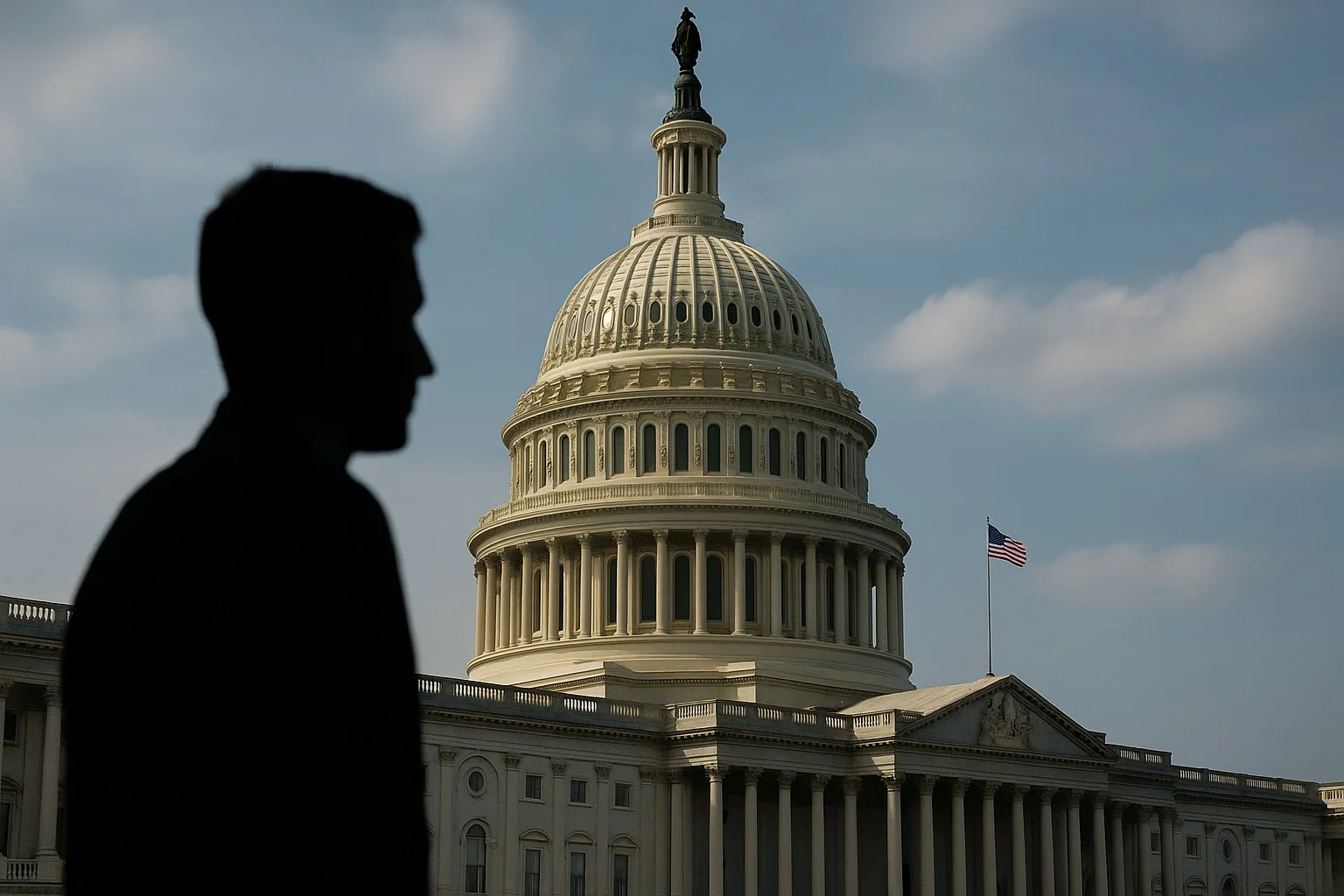
CMB Crypto Update: New Customer Ban on 10 Platforms, 45 Companies on Liquidation List
The Capital Markets Board (CMB) has taken another important step towards the crypto asset sector. The Board has banned 10 crypto asset platforms currently undergoing license applications from accepting new customers until further notice. The decision was made at the CMB meeting on July 17, 2025, and the regulation was announced to the public via a note added to the "List of Active Users." With this decision, the aforementioned platforms will only be able to continue to mediate transactions for their existing users. The CMB stated, "The list published here was created to inform the public about the organizations that declared they would operate in accordance with the temporary Article 11 of Capital Markets Law No. 6362. In this context, the existence of the "List of Active Users" does not mean that the organizations on this list are authorized under the relevant legislation." Some companies on the CMB list. Platforms temporarily halting new user acceptance announcedThe 10 platforms temporarily halting new customer acceptance include: Arbitex, GMS Global, Gümüş Global, Kriptrade, Mexc, Necen, Ovro, Rootech, Web3, and Yuex. Although these companies are in the process of obtaining licenses from the Capital Markets Board (CMB), they are subject to restrictions on customer acquisition due to the ongoing audit process. Existing users are exempt from this decision; therefore, there will be no interruption to trading or other services.Being included on the "Operating" list does not automatically mean full authorization. This move by the CMB demonstrates that a mere declaration of intent is not sufficient for a license and that compliance with certain criteria is mandatory throughout the process.Liquidation process initiated for 45 platformsAnother important update from the CMB is the list of crypto asset companies entering liquidation. According to the latest announcement, 45 companies have decided to cease operations and are included on the "In Liquidation Process" list. Notable names on this list include the Turkish representatives of international platforms such as Bitfinex, BingX, Coinbase, Bitget, and Nexo, as well as Coinlist and Coinstate.While no official explanation has been released as to why these companies were placed in liquidation, it is believed that companies that failed to comply with licensing criteria or withdrew their applications were included on this list.Sector Remainers and Custody ApplicationsThe CMB's list includes a total of 60 organizations that are stated to continue their operations. The majority of these companies are platforms already active in Turkey with large user bases. Well-known brands such as Binance Turkey, BtcTurk, Paribu, Bitexen, and ICRYPEX remain on this list.The number of institutions applying to provide custody services has also been clarified. Nine major institutions, including Akbank, Garanti BBVA, İş Bankası, and Yapı Kredi, have applied for crypto custody licenses to ensure the security of investor assets. This demonstrates that traditional financial institutions have reached a significant threshold in their integration into the crypto world. The Capital Markets Board (SPK) emphasized that the published lists are for informational purposes only, and that the organizations included on these lists are not yet officially authorized. Institutions will be required to apply for authorization from the SPK in accordance with the regulations that will come into effect. Therefore, the process is not yet complete.

The US House of Representatives Passes 3 Crypto Bills, Trump Also Makes 401(k) Moves
The cryptocurrency market in the US has entered a historic turning point. The House of Representatives has passed three important bills regarding crypto assets, laying the foundation for a clear legal framework for both the sector and investors. These bills were voted on as part of "crypto week," a period primarily led by Republicans.One of the most notable bills passed in the House was the Digital Asset Market Clarity (CLARITY) Act. This bill passed with a vote of 294-134, while another significant piece of legislation, the Guiding and Establishing National Innovation for US Stablecoins (GENIUS) Act, passed with a vote of 308-122. The more controversial Anti-CBDC Surveillance State Act was approved by a narrower margin of 219-210. In other words, it's safe to say that the two parties are beginning to find common ground on the regulation of crypto assets. The CLARITY and GENIUS bills, in particular, received significant support from Democrats. However, the anti-CBDC bill, due to its opposition to central bank digital currencies, has generated more controversy and been heavily criticized by Democrats.Following this flurry of activity in the House, all eyes are now on the Senate. The CLARITY and anti-CBDC bills will undergo further debate in the Senate. The GENIUS Act, having passed the Senate in June, will be directly submitted to President Donald Trump for approval. Trump is expected to sign it by Friday.Trump plans to include crypto in retirement plansHowever, Trump's crypto agenda doesn't end there. According to the Financial Times, President Trump is preparing an executive order that would allow 401(k) plans to invest in cryptocurrencies and other alternative assets. This executive order would allow individual retirement accounts to access crypto assets like Bitcoin, not just stocks and bonds.This potential change would reinforce the decision made by the US Department of Labor in May, following the withdrawal of restrictions imposed during the Biden administration. Major financial companies like Fidelity have already begun offering crypto-backed 401(k) accounts. As of 2024, there were more than 715,000 401(k) plans in the US, with a total of $8.9 trillion in assets under management.Trump's moves toward crypto are not limited to the economy. The president has nominated attorney Eric Tung, who has close ties to the crypto industry, to the Ninth Circuit Court of Appeals, one of the most powerful appellate courts in the US. Tung previously represented the Blockchain Association in the Tornado Cash case and is known for his rhetoric supporting stablecoin companies. If confirmed, his appointment could have significant impact, particularly in jurisdictions encompassing technology and crypto hubs like California.However, the opposition has also drawn harsh criticism. Representative Maxine Waters described this week as "crypto corruption week," arguing that the enacted laws could weaken financial oversight and create systemic risks similar to the 2008 crisis.
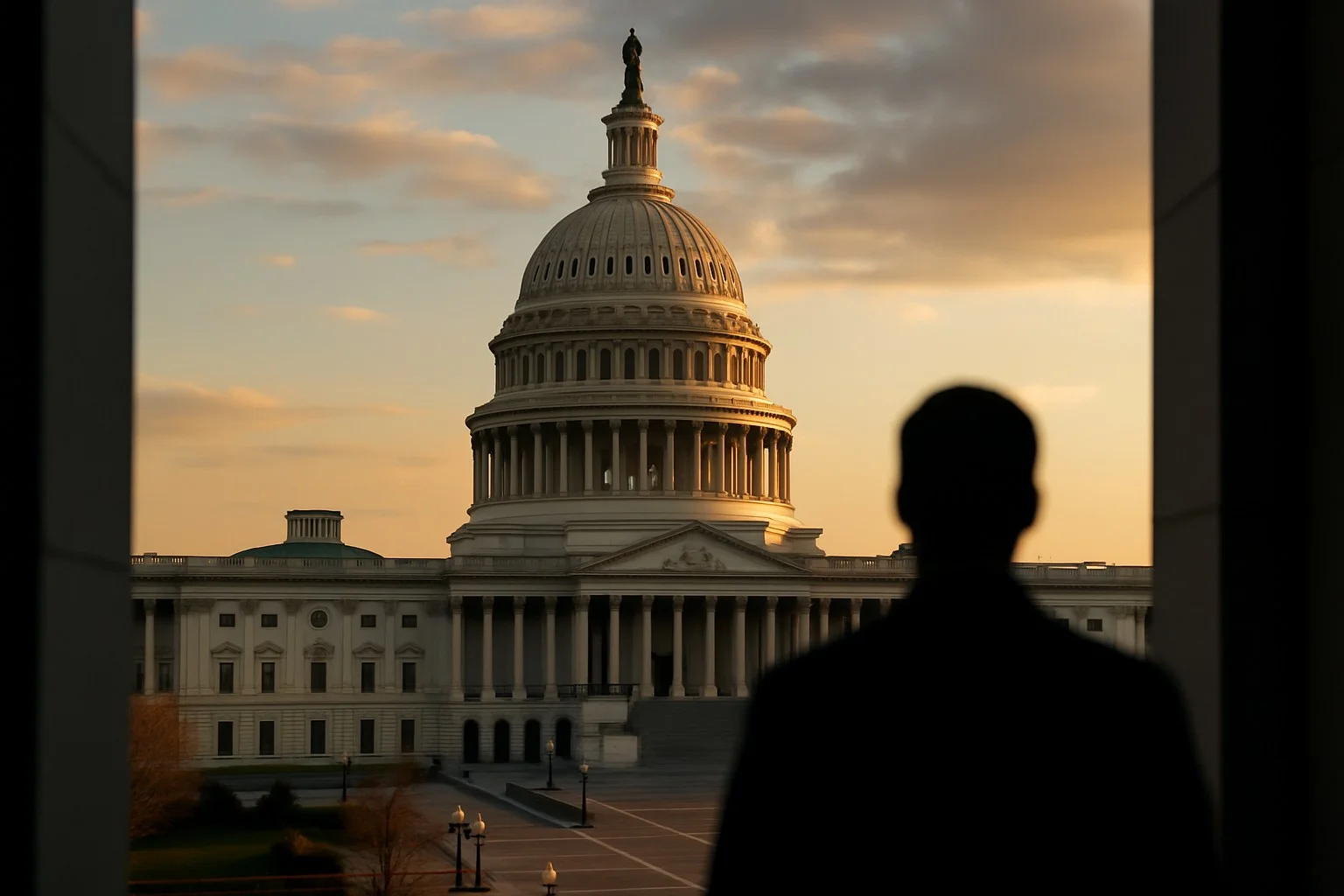
US Takes Historic Step in Crypto Regulation: Progress Made on CLARITY and GENIUS
The US House of Representatives has taken a historic step toward providing regulatory clarity for crypto assets. Two critical bills, the CLARITY Act and the GENIUS Act, have advanced after a procedural process that lasted approximately 10 hours, marking the longest vote in Congressional history. This development means that long-awaited regulations for the crypto sector could finally become law.The process was shaped by internal tensions and negotiations within the Republican Party. As we reported, the bills, which failed to gain support from some Republican lawmakers in their initial vote on Tuesday, were officially introduced to the House floor on Wednesday, receiving the necessary procedural approval by a vote of 217-212. Closed-door meetings with US President Donald Trump, in particular, were decisive in changing the minds of some hesitant lawmakers.The most critical element in paving the way for the bills was the addition of language to the CLARITY Act that includes "tough measures against Central Bank Digital Currency (CBDC)." This addition provides a safeguard against the federal government's potential surveillance powers over citizens. While the GENIUS Act cannot be amended, this agreement was sufficient to win the support of many undecided lawmakers.House Financial Services Committee Chairman French Hill, in a statement after the vote, welcomed the process, saying, "Thanks to the efforts of President Trump, Speaker Mike Johnson, and Republican leaders to advance the digital asset agenda, we have achieved a historic success."What do CLARITY and GENIUS aim to do?The CLARITY Act aims to provide a clear regulatory framework for cryptoasset markets. The bill was drafted by House Agriculture Committee Chairman G.T. Thompson and subcommittee chairs Dusty Johnson and Bryan Steil. It aims to clarify fundamental issues such as how digital assets will be classified and which institutions will oversee them.The GENIUS Act, on the other hand, focuses specifically on the stablecoin market and aims to increase consumer protection and encourage innovation in this area. If enacted, the bill could usher in a new era in the US digital asset sector. Additionally, the "Anti-CBDC Surveillance Act," introduced separately by House Majority Discipline Officer Tom Emmer, aims to prevent central bank digital currencies from violating citizens' privacy.Record-length voting time marks crypto weekThe procedural vote, which began at 1:19 PM on Wednesday, concluded at exactly 9:04 PM. The tension and negotiations that ensued during this period formed the backdrop for one of the most significant legislative steps in crypto history. Rep. Bryan Steil shared the following on social media platform X: "After the longest House vote in history... Crypto Week continues in full swing!" If the bills are approved in the final vote in the coming days, President Trump is expected to sign the GENIUS Act into law by the end of the week. This could bring long-awaited regulatory clarity for digital assets in the US and usher in what supporters call a "golden age."
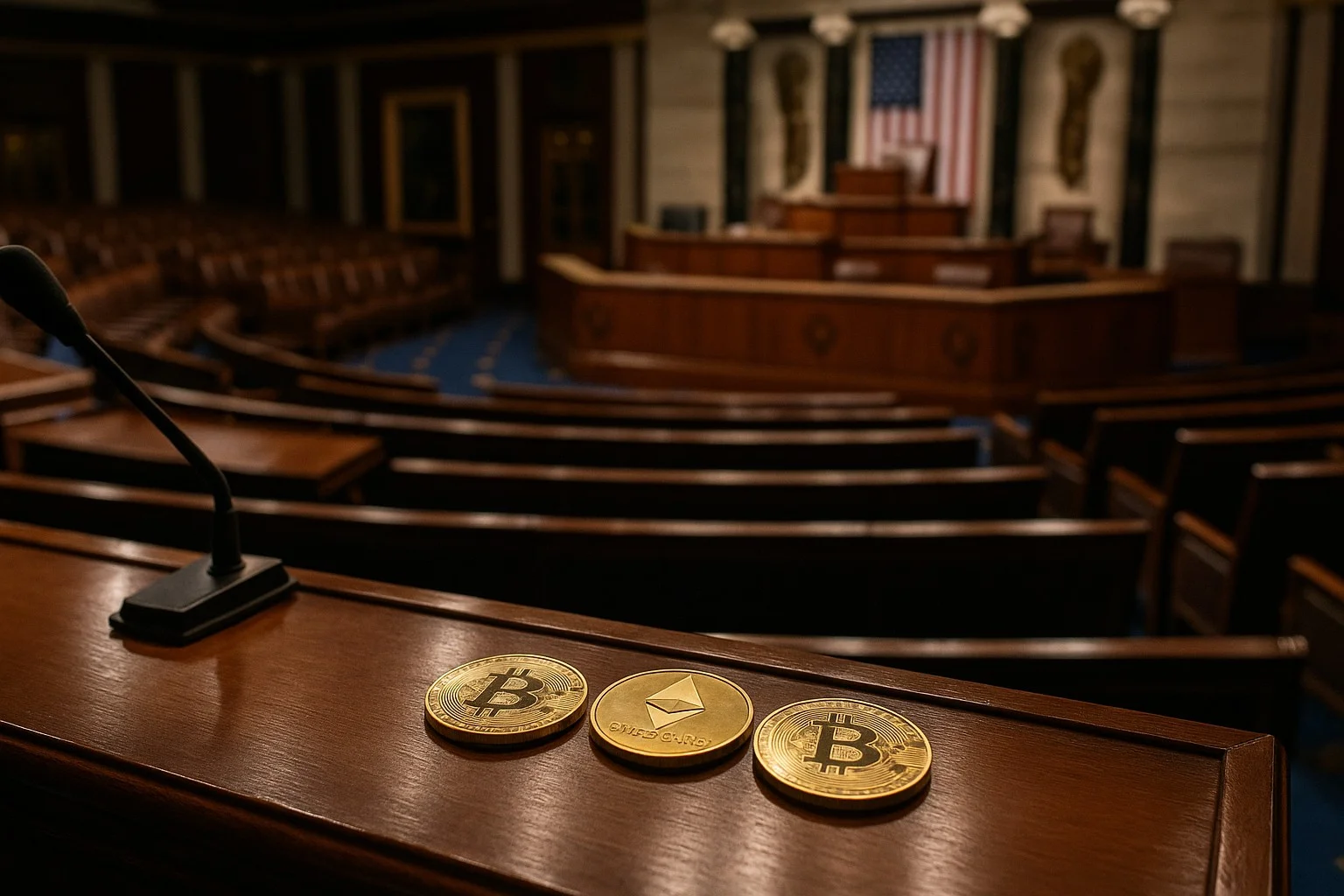
Crypto Bills Deadlocked in US House of Representatives: Trump Takes Action
While critical cryptocurrency regulation bills were expected to be brought to a vote in the US House of Representatives, their unexpected rejection in a preliminary vote on Tuesday has thrown the so-called "Crypto Week" into uncertainty. The House voted 223 nays to 196 yeas, preventing three key bills from advancing to a floor vote. House sources indicated that the process will be revisited on Wednesday.At the center of the vote are two major bills: the Guiding and Establishing National Innovation for U.S. Stablecoins (GENIUS) Act and the Digital Asset Market Clarity (CLARITY) Act. These bills were designed to establish the legal framework for stablecoins and create a regulatory infrastructure for digital asset markets, respectively.The GENIUS Act has already passed the Senate and, if enacted, would require stablecoin companies to fully back their holdings with US dollars or similar liquid assets. It would also impose annual audit requirements for companies with a market capitalization exceeding $50 billion and establish rules regarding foreign issuances. This bill was expected to reach President Donald Trump's desk before the end of July.The CLARITY Act aims to broadly regulate the cryptocurrency market. The bill clarifies the division of authority between the SEC (U.S. Securities and Exchange Commission) and the CFTC (Commodity Futures Trading Commission), requires companies to provide transparency for retail investors, and requires the separation of client assets from company assets.Opposition from some Republican lawmakers prevented the bills from advancing in Tuesday's vote. Marjorie Taylor Greene, Chip Roy, and Anna Paulina Luna, among others, voted "no," citing concerns about central bank digital currencies (CBDCs). Greene stated in a social media post that she opposed the GENIUS bill because it did not ban CBDCs, which she called "unacceptable." Responding to these criticisms, Chamber of Digital Commerce CEO Cody Carbone argued that the concerns were unfounded, as a separate bill introduced by Emmer and aimed at blocking CBDCs was already on the ballot. Carbone said, "If we want to combat CBDCs, we need to pass the GENIUS Act, which would allow for the development of a private stablecoin market."Trump Takes ActionFollowing these developments, President Trump announced on the social media platform Truth Social that the bill would pass on Wednesday. He stated that he had met with 11 of the 12 Congressional Representatives in the Oval Office, and that all of them had pledged their support for the GENIUS bill. He also noted that House Speaker Mike Johnson had pledged to hold the vote as early as possible. According to the new voting schedule, voting on the GENIUS Act, the CLARITY Act, and the Anti-CBDC Act is expected to resume on Wednesday at 12:20 PM US time.
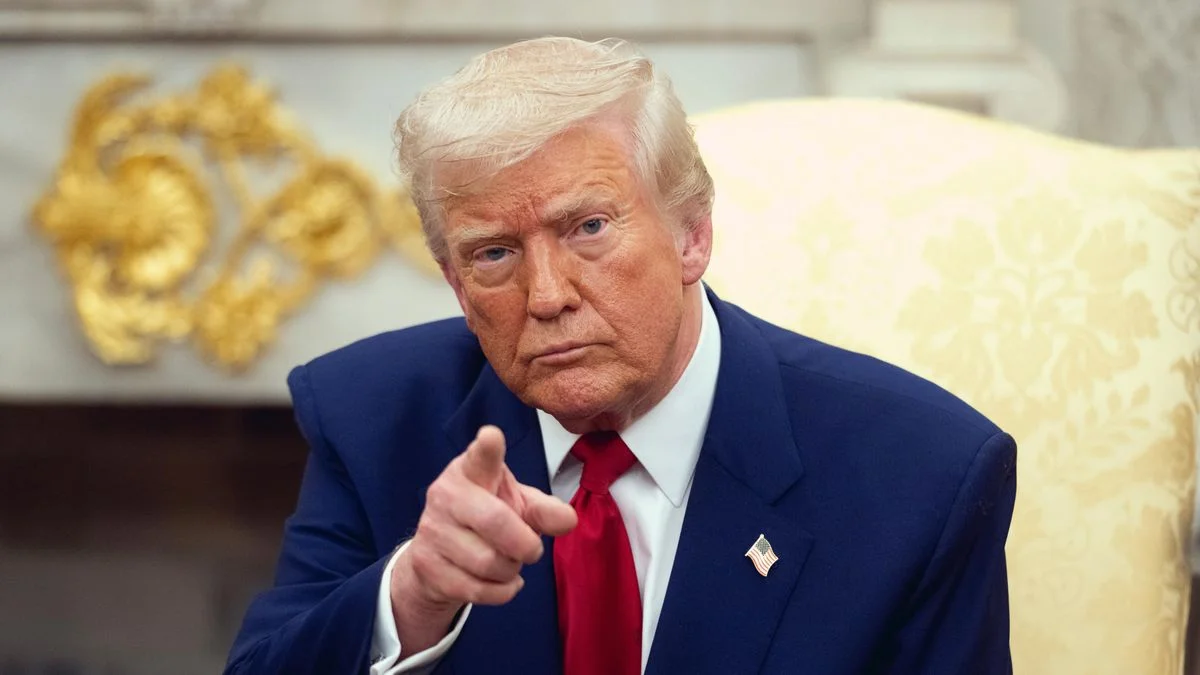
Joint Crypto Statement from the Fed, FDIC, and OCC to Banks
Three major banking regulators in the United States have issued an important statement regarding banks' relationship with crypto assets. The Federal Reserve (Fed), the Office of the Comptroller of the Currency (OCC), and the Federal Deposit Insurance Corporation (FDIC) reiterated that banks must comply with existing laws and risk management principles when custodial crypto assets on behalf of their customers.The statement emphasized that the risks banks may face when offering crypto asset custody services should be carefully evaluated, just as with any other new product or service. The institutions clarified in their statements that this statement does not create any new regulatory expectations. Instead, it aims to remind banks of how existing laws and regulations should apply to crypto asset custody activities.Critical issues banks should be aware of include cybersecurity vulnerabilities, cryptographic key protection, and the management of sensitive data. The agencies' joint statement stated, "A banking institution planning to provide crypto asset custody services should consider the continuous evolution of the crypto asset market and the technology underlying these assets and establish a flexible risk management framework accordingly."Regulators also emphasized that effective anti-money laundering regulations, audit processes, software infrastructure, and governance controls are required to ensure these activities operate within legal frameworks."Crypto Week" has begunThis announcement came as part of the US House of Representatives' "Crypto Week." Various cryptocurrency-related bills are expected to be voted on this week, and comprehensive regulations are expected to take shape. The new legal frameworks aim to establish clearer rules for the cryptocurrency market.Meanwhile, US crypto policies are being reshaped with the change of presidency. The regulatory changes introduced by the Trump administration indicate a significant easing of restrictive regulations implemented during the previous Biden administration. Notable examples of these changes include the OCC's announcement in May that US banks could trade crypto assets for their own accounts, and the FDIC's lifting of the requirement for banks to provide advance notice for crypto activities.The appointment of individuals known to be crypto-friendly to the helm of regulatory bodies is another indicator of this political shift. Jonathan Gould, appointed to the OCC by the Senate last week, previously served as general counsel at Bitfury.The increasing involvement of banking institutions in the crypto space demonstrates the increasingly clear-cut nature of the US's approach to the crypto industry. However, regulators continue to emphasize the need for banks to exercise caution and effectively manage technology-based risks during this process.

Watch Out for July 22: Cryptocurrency Report to be Presented in the US
The US is preparing to take another important step towards its goal of becoming a global leader in cryptocurrencies. The Trump administration is continuing its work on a new “Digital Asset Report” expected to be presented on July 22. This comprehensive report will include recommendations and regulations that will shape US policies on cryptocurrencies.This development comes after US President Donald Trump signed an executive order in January that aims to strengthen America’s position in the crypto industry. The administration’s ultimate goal is to make the US a global hub for cryptocurrencies.Bitcoin reserve on the agenda: Funding can be provided without increasing tax burdenOne of the most striking headlines of the report is America’s plan to create a strategic Bitcoin reserve. According to industry sources, alternative funding methods that will not impose an additional burden on taxpayers are proposed for the financing of this reserve. Although this plan has not yet been finalized, it is expected that the US government’s influence on cryptocurrencies will increase if it is implemented.If this reserve plan is formalized, America’s leadership in the crypto market will be further consolidated and a strong national asset base will be created in the digital economy. A new era may begin in the US's crypto policies.National framework for cryptocurrenciesThe report being prepared is not limited to the Bitcoin reserve. With the proposal of the US Congress, the establishment of a federal digital asset regulatory framework for stablecoins is also on the agenda. In addition, it is suggested that steps be taken to ensure that crypto companies receive equal service from banking institutions such as the Federal Reserve. This approach aims to reduce discrimination against crypto companies in the financial system and provide more equitable access to the sector.Statement from the CFTC Chair: "Crypto roadmap"Caroline Pham, Interim Chair of the US Commodity Futures Trading Commission (CFTC), defined the report in question as a "cryptocurrency roadmap". The report is expected to include new legal and regulatory proposals, as well as the steps taken by federal institutions for digital assets to date. The idea of a national digital asset reserve, announced by Trump in March, will also be one of the focal points of the report.The timing of the proposals to be included in the report is also noteworthy. The Trump administration has declared the week of July 14 as “Crypto Week.” Within this scope, crypto regulation bills will be discussed in the House of Representatives. Experts state that this report can be used as a critical policy tool in Trump’s upcoming election process. In general, we can say that there has been positive news about cryptocurrencies from the US recently. As we have previously reported, two US institutions will hold important hearings on cryptocurrencies on July 9, tomorrow. The House of Representatives will hold a hearing titled “Making America the Crypto Capital of the World: Ensuring Digital Asset Policy Fit for the 21st Century.” The Senate will hold a hearing titled “Building Tomorrow’s Digital Asset Markets.” In particular, providing legal clarity for Bitcoin and altcoins is very valuable for the sector.

US to Talk Crypto on July 9: Two Historic Sessions for Investors
The US Congress has turned its course to the cryptocurrency market following President Trump's comprehensive tax and budget package. On Wednesday, July 9, both the House of Representatives' Ways and Means Committee and the Senate's Banking Committee will hold important hearings on cryptocurrencies. On the other hand, "Crypto Week" is approaching. As will be recalled, House Speaker Mike Johnson declared the week of July 14 as "Crypto Week". Within this scope, bills on the structure of digital asset markets and stablecoins will be voted on.Crypto taxation on the tableThe session titled "Making America the Crypto Capital of the World: Ensuring Digital Asset Policy Fit for the 21st Century" to be held by the House of Representatives will attempt to clarify the framework for cryptocurrency tax policies. Although the witness list has not yet been shared with the public, it is expected that important topics that directly concern investors and developers will be discussed in the session. In particular, the taxation and declaration procedures of leading assets such as Bitcoin and Ethereum and stablecoins will be the subject of discussion.Sector giants to speak in the SenateThe Senate session titled “Building Tomorrow’s Digital Asset Markets” will be attended by familiar names from the sector. Blockchain Association CEO Summer Mersinger, Chainalysis CEO Jonathan Levin, Paradigm partner Dan Robinson and Ripple CEO Brad Garlinghouse will answer questions from Senate members. The Senate will address liquidity systems, custody solutions and the reserve structure of stablecoins in this session. It is aimed to clarify regulatory uncertainties that may especially interest institutional investors.CLARITY and GENIUS laws to be voted onBeyond July 9, July 14 is also eagerly awaited in the crypto field. Because on this date, two important bills will be voted on in the House of Representatives as part of Crypto Week: CLARITY Act and GENIUS Act. The CLARITY Act aims to determine which crypto assets are subject to which regulator by making a clear division of duties between the SEC and CFTC. This law could pave the way for large banks and institutional investors to enter the crypto market more strongly.The GENIUS Act provides a legal framework for stablecoins. This law, which passed the Senate in June, introduces regulations regarding the issuance and trading of stablecoins. If the bill is approved by the House of Representatives, banks, fintech companies and large retailers will be able to start offering stablecoin services. However, the fact that the bill was submitted to a direct vote by skipping the committee stages has drawn criticism from some segments.Although both bills initially received bipartisan support, they later faced serious objections from Democrats. The main reason for this was Trump and his family's close ties to various crypto projects and stablecoin initiatives. Democrats proposed amendments that would prohibit presidential candidates from making private crypto investments. However, these proposals were rejected by the committees, which are mostly Republicans.
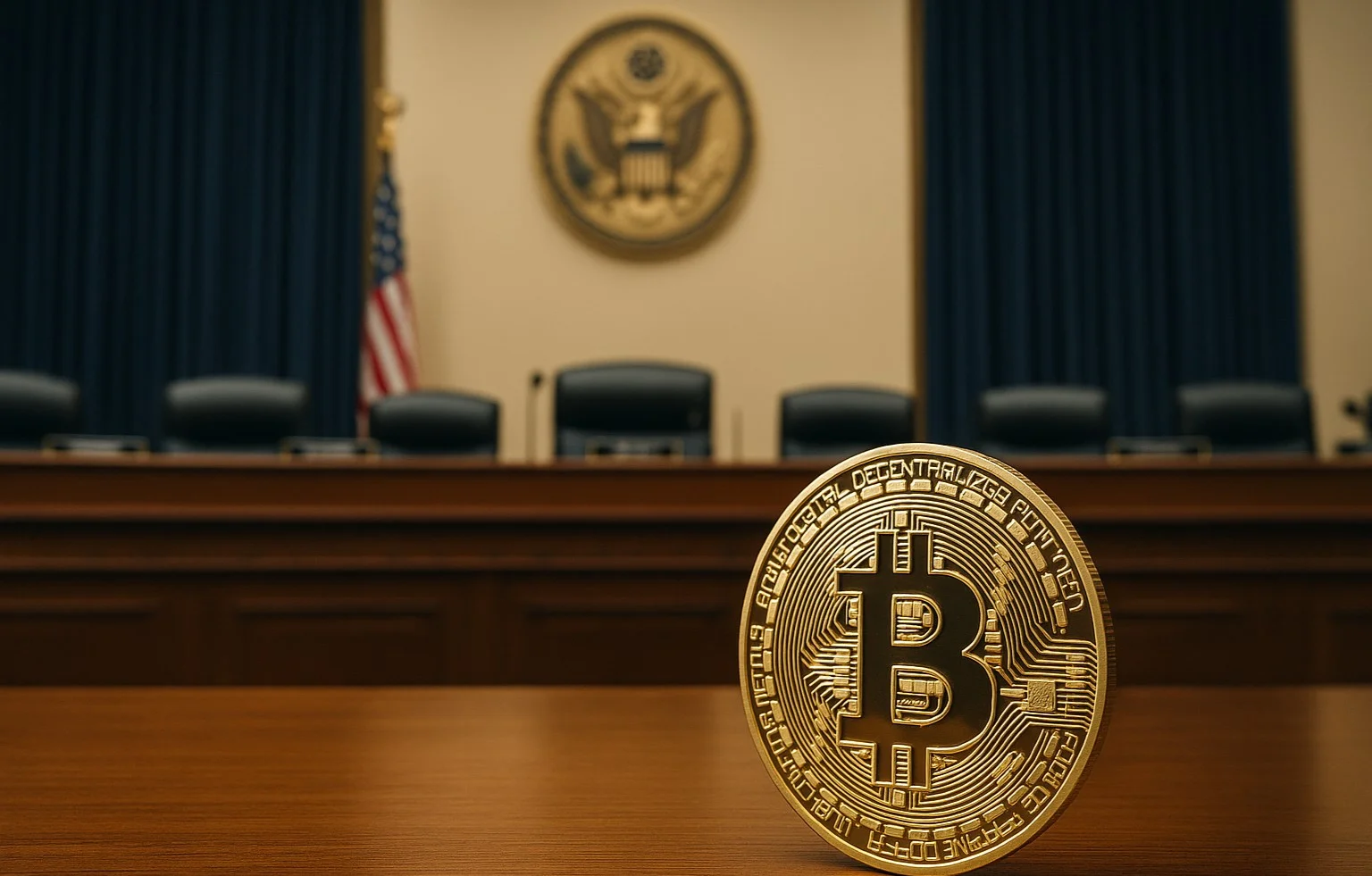
US House of Representatives Prepares for “Crypto Week”: Three Critical Bills on the Agenda
The United States House of Representatives is preparing to take a historic step in the field of digital assets by declaring the week of July 14 as “Crypto Week.” Three important bills are expected to be on the House agenda during this process: the GENIUS Act, the CLARITY Act, and the Anti-CBDC Surveillance State Act. The bills are seen as part of President Donald Trump's goal of making the US “the crypto capital of the world.”French Hill, Chairman of the House Financial Services Committee, said in a statement, “We are taking historic steps to ensure that the US remains a leader in innovation,” highlighting the importance of establishing a legal framework for both investors and consumers. Hill also noted that priority will be given to issues such as the regulation of payment-based stablecoins and the prohibition of central bank digital currency (CBDC) as part of “Crypto Week.” GENIUS Act: Clear rules coming for stablecoinsThe GENIUS Act, which was approved by the Senate in June and is now before the House of Representatives, requires stablecoin companies to operate with full reserves in US dollars or similar liquid assets. The bill, which imposes an annual audit requirement on companies with a market value exceeding $50 billion, also sets rules for foreign companies. President Trump has made it clear that he wants the bill to be signed by August.Following discussions on the House's own version, the STABLE Act, which was previously on the agenda, members are expected to focus on the version passed by the Senate. This approach aims to speed up the process and align with President Trump's requested timeline.CLARITY Act: CFTC takes center stageThe CLARITY Act aims to end regulatory uncertainty in the cryptocurrency market. The bill proposes to transfer oversight of digital commodities to the US Commodity Futures Trading Commission (CFTC) while limiting the authority of the Securities and Exchange Commission (SEC). Representative Glenn Thompson, who supports the bill, emphasized that they are responding to the industry's calls by saying, “We are providing the long-awaited regulatory clarity.”Anti-CBDC Act: No Passage for the Digital DollarAnother important bill to be discussed during Crypto Week is the Anti-CBDC Surveillance State Act. This law aims to prevent the US Federal Reserve (Fed) from offering individuals direct central bank digital currency. Republican Whip Tom Emmer, who introduced the bill, stated that this initiative is critical to protecting the financial privacy of the American people. “When we send these three bills to President Trump's desk, we will position the US as a leader in digital assets,” he said.While the bills are advancing with Republican support, criticism is also coming from the Democratic side. In particular, President Trump's interest in cryptocurrency and the reported $620 million in income his family has earned from cryptocurrency projects are sparking debate. Democrats argue that some parts of the bills were rushed through and not adequately reviewed.
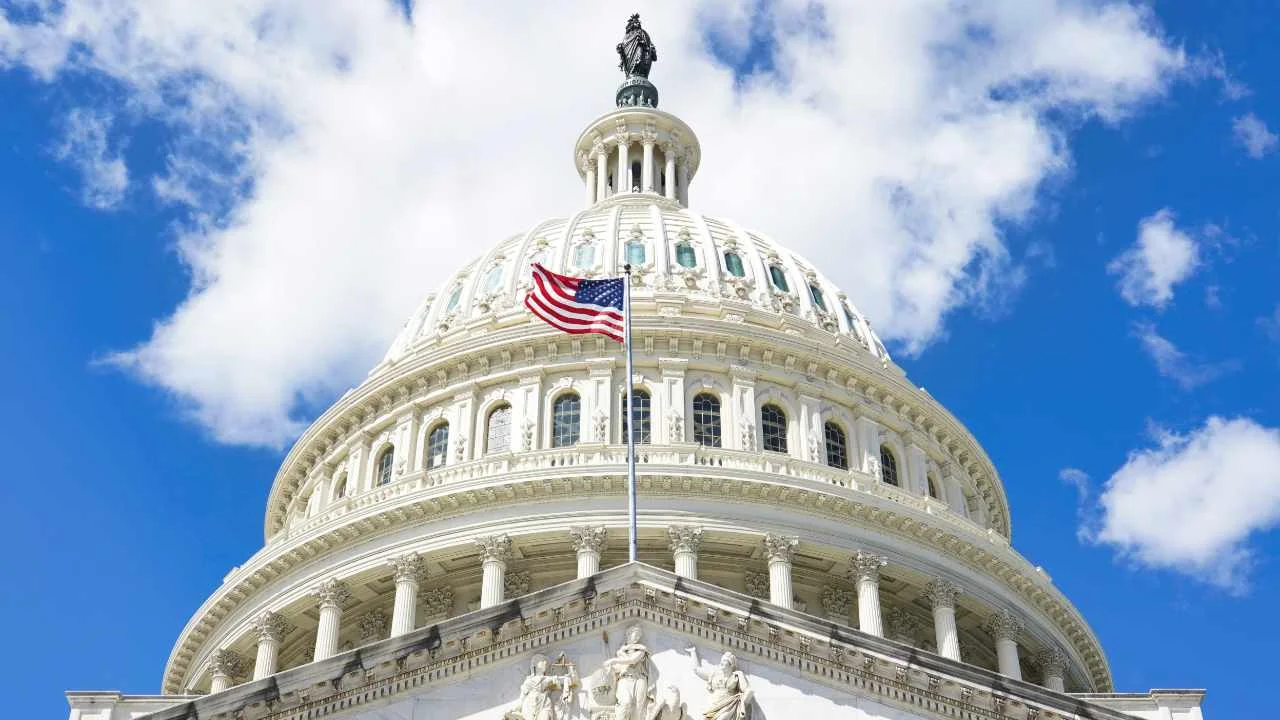
SPK Blocks Access to PancakeSwap and Numerous Other Sites
Turkey is tightening its regulatory measures in the cryptocurrency markets. In a bulletin published on July 4, 2025, the Capital Markets Board (CMB) announced that it had blocked access to several websites, including the decentralized finance (DeFi) platform PancakeSwap. This decision marks the beginning of the first direct intervention in the DeFi sector in Turkey.First intervention against a DeFi platformAccording to the CMB's decision, the reason for blocking access to PancakeSwap is its “unauthorized cryptocurrency asset service provider activities” in Turkey. This decision is noteworthy as it marks the SPK's first direct intervention targeting decentralized finance protocols. Until now, access to many global cryptocurrency exchanges operating without a license in Turkey had been blocked, but these exchanges were mostly centralized in nature. The inclusion of DeFi platforms like PancakeSwap on the list indicates that the scope of regulation has been expanded. Following the decision, a short-term decline was observed in the price of PancakeSwap's native token, CAKE. This situation once again highlighted how regulatory news can impact the market.Which sites are targeted?The SPK bulletin stated that access to dozens of websites had been blocked. Among these sites are FX platforms offering leveraged services abroad, unauthorized crypto asset service providers, and the crypto comparison site CryptoRadar. The decision was made in accordance with Articles 99/A and 99 of the Capital Markets Law. The SPK had previously announced that it would take similar steps against all platforms operating in Turkey without a license.The SPK's jurisdiction and the new eraWith the legal amendment made in 2023, the SPK gained the authority to block access to foreign crypto platforms operating without a license in Turkey. The new decisions taken in this context are in line with Turkey's desire to act in a more structured manner in the crypto currency field. The access restrictions imposed are also evaluated within the scope of the integrity of the financial system and the fight against money laundering.However, these decisions have also sparked some debate regarding the decentralized nature of decentralized finance. DeFi protocols generally operate with smart contracts rather than centralized servers, so access restrictions may not completely cut off access to platforms. Users can continue to access these platforms through alternative methods such as VPN usage. However, the symbolic and legal impact of the decision is significant.Are other DeFi projects next?Following the SPK's decision on PancakeSwap, attention has turned to other major DeFi projects such as Uniswap, Curve, and Aave. These platforms also operate with similar decentralized structures and have active user bases in Turkey. If the SPK begins to apply similar access restrictions to these projects, it could lead to a significant disruption in the DeFi ecosystem.
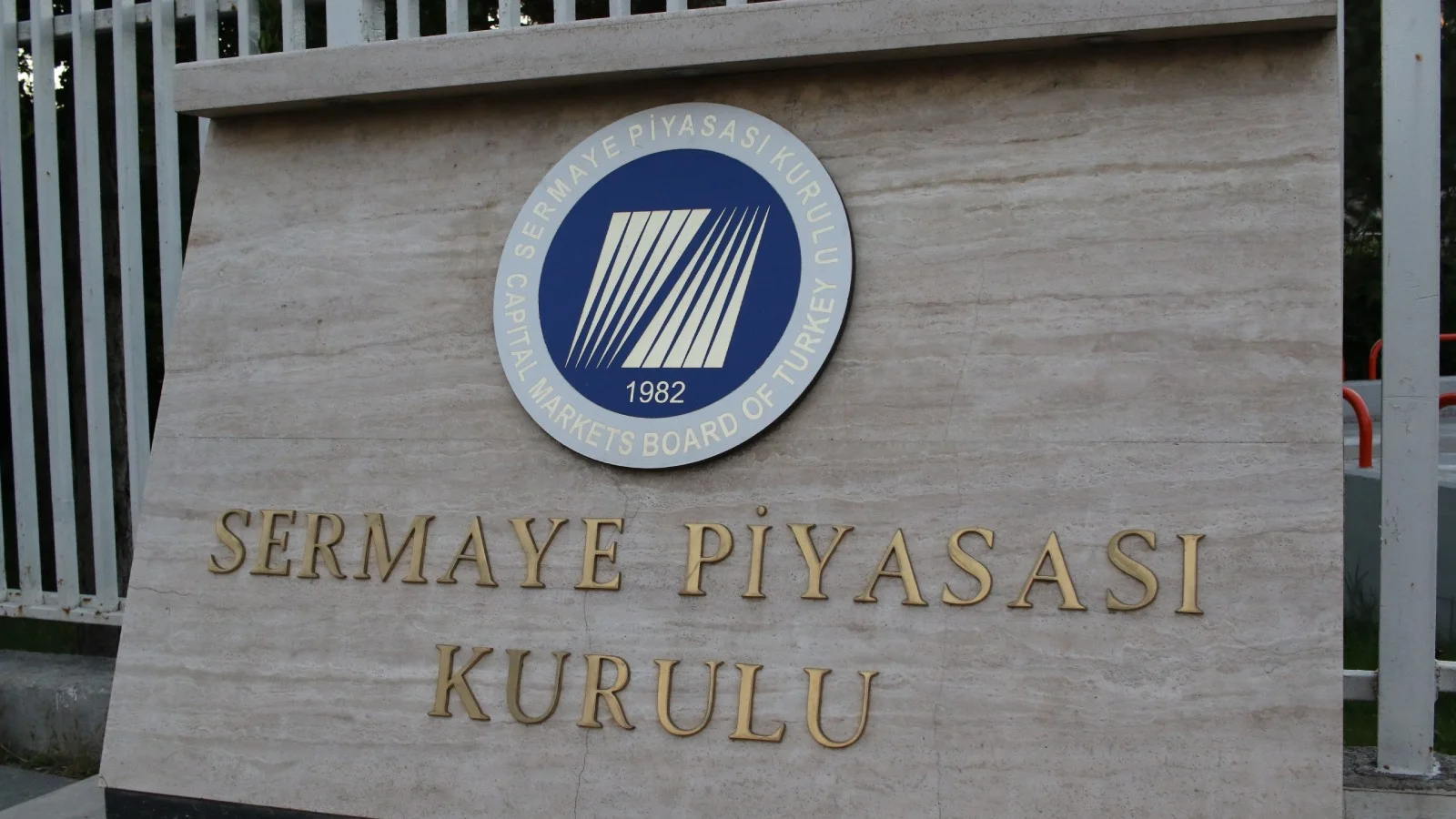
SEC Suspends Grayscale's Crypto ETF Plan: Backtrack Just One Day After Approval
The US Securities and Exchange Commission (SEC) suspended its approval of Grayscale's plan to convert its multi-asset digital fund into an exchange-traded fund (ETF) just one day after granting it. This sudden decision shocked the crypto markets.SEC had approved Grayscale's ETF applicationAs reported, on July 1, the SEC's Trading and Markets Division had approved Grayscale's Digital Large Cap Fund (GDLC) conversion to an ETF through an expedited procedure. This decision would have paved the way for the fund to be listed on the New York Stock Exchange (NYSE Arca) and offered to institutional investors. However, on the evening of July 2, SEC Vice Chairman J. Matthew DeLesDernier sent a letter to the NYSE stating that the approval had been suspended. The letter explained that the approval would be reviewed by the SEC Commission and that the fund could not be offered as an ETF until this process was completed.Grayscale has not yet made an official statement on the matter, and SEC spokespeople have also declined to comment. The SEC's decision to suspend the approval has caused some unease, especially given the recent increase in ETF applications based on altcoins such as DOGE, SOL, and XRP. Grayscale's Digital Large Cap Fund allocates 80% of its portfolio to Bitcoin and 11% to Ethereum. The remaining portion includes altcoins such as Solana, Cardano, and XRP, which carry regulatory uncertainty. This structure is a key factor distinguishing the fund from single-asset-based ETFs. This difference may have influenced the SEC's decision.A comprehensive law for ETFs may be on the horizonBloomberg ETF analyst Eric Balchunas suggested that the SEC's sudden halt decision may be related to its reluctance to introduce multi-asset products to the market before establishing a more comprehensive crypto ETF regulatory framework. According to Balchunas, the Commission prefers to postpone such products before publishing the crypto asset-based ETP (Exchange-Traded Product) standards currently on its agenda.It is quite rare for the SEC to make such a decision at the Commission level. According to experts, this usually indicates fundamental disagreements within the agency on issues such as investor protection, market readiness, or regulatory authority. In particular, the inclusion of tokens such as XRP and SOL, whose status as securities or commodities remains unclear, in the ETF raises legal gray areas.James Seyffart of Bloomberg claims that the SEC is trying to buy time with this decision rather than outright rejecting Grayscale. According to Seyffart, since the Commission did not have a clear reason to directly reject Grayscale's application, it may have resorted to an unusual method of “pretending to approve and then suspending” it.What happens now?At this point, the SEC has not announced a new timeline or roadmap. This means that the ETF launch has been indefinitely postponed.

Crypto Regulations in Trump's Massive Legislative Package: Is the July 4 Target in Jeopardy?
US President Donald Trump's massive legislative package, dubbed the “Big Beautiful Bill,” which he aims to pass into law by July 4 Independence Day, has begun to face delays due to intense debates and amendment proposals in the Senate. The bill's provisions, which include budget and tax reforms as well as provisions related to cryptocurrencies, have sparked disagreements among members of Congress. This situation has further complicated the process, while some important regulations have already begun to emerge.Crypto tax exemption proposal: Lummis takes the stageRepublican Senator Cynthia Lummis has proposed a tax reform that closely affects crypto users and miners in the US by adding a provision to the bill. According to Lummis' proposal, the goal is to exempt crypto transactions under $300 and transactions totaling less than $5,000 annually from taxation. Additionally, crypto income obtained through airdrops, staking, and mining is also expected to be exempt from taxation until sold. Senator Lummis said in a statement, “Miners and stakers have been taxed twice for years: first when they receive the block reward, and second when they sell. We must put an end to this injustice.” The proposal also includes exempting most crypto lending agreements from taxation and applying the 'wash-sale' (buy-sell cycle for tax advantage) rules to be applied to crypto.This move is seen as part of Lummis' long-standing regulatory efforts, known for her crypto-friendly stance among Republicans. Indeed, Lummis had previously played a leading role in drafting the GENIUS Act, which covers stablecoin regulations.Warren rejects strict crypto banMeanwhile, a proposal led by Democratic Senators Elizabeth Warren and Jeff Merkley to ban government officials and their family members from owning cryptocurrency assets or promoting them in this field was rejected by the Senate. The bill had been expanded to cover many public officials, including the president, vice president, and members of Congress, as well as their spouses and children. It even aimed to restrict temporary public officials such as Elon Musk for one year after leaving office.Lummis opposed the proposal, arguing that “I understand the ethical concerns, but this proposal undermines American innovation and competitiveness,” claiming that the scope of the bill was excessive.Trump's July 4 goal in jeopardyThe bill passed the House of Representatives in May by a narrow margin of 215 to 214. However, the Republicans' slim majority in the Senate is prolonging the process. The process, known as “Vote-a-rama,” in which hundreds of amendments are put to a quick vote, has been going on for days. So far, negotiations on hundreds of provisions have continued into the night, and no agreement has been reached yet. As a result, the likelihood of the bill returning to the House of Representatives in time to be enacted by July 4 appears to have diminished.Elon Musk's harsh response: “I'll start a new party”The spending authorities and potential debt increase introduced by the bill have also prompted Tesla CEO Elon Musk to take action. Musk, who previously supported Trump's campaign, posted on X (formerly Twitter), “If this insane spending bill passes, I will start a new party the next day,” signaling the launch of a new political movement called the “America Party.”Musk argued that the bill would add $3.3 trillion to the U.S. debt over the next 10 years, saying, “Every member of Congress who promised to reduce government spending and yet voted yes on this bill should be ashamed. I will do everything in my power to unseat them in the next election.”
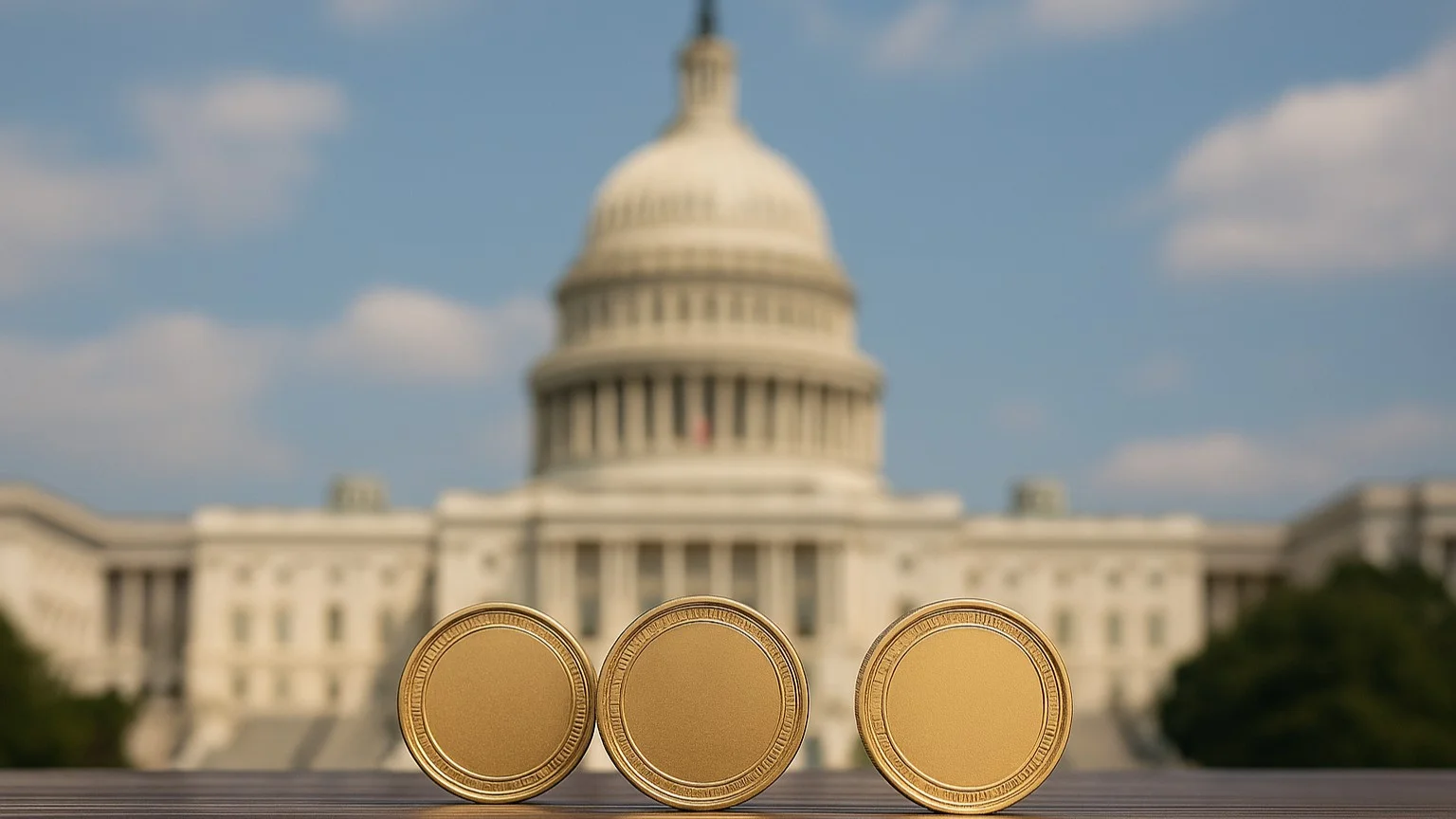
National Cryptocurrency Reserve Being Established in Kazakhstan
Kazakhstan has announced a new step to increase its influence in the cryptocurrency field. According to a statement by Timur Suleimenov, Governor of the National Bank of Kazakhstan, cryptocurrencies seized in the country and coins obtained from state-supported mining activities will be collected in a national reserve managed by an institution affiliated with the National Bank.A reserve will be created for cryptocurrencies in KazakhstanTimur Suleimenov, Governor of the National Bank of Kazakhstan, has announced a new plan that will take the country's approach to cryptocurrencies one step further. According to the plan, cryptocurrencies seized by the state and those obtained from public mining operations will be collected in a “national cryptocurrency reserve” managed by an institution affiliated with the Central Bank.This development could increase Kazakhstan's influence in the cryptocurrency ecosystem. The country already stands out for accounting for approximately 13% of the global Bitcoin (BTC) mining hash rate. Following an energy crisis in 2022, the state carried out a major operation against illegal mining activities and seized equipment worth approximately $200 million.According to Suleimenov, this new reserve structure will be established in a manner similar to a sovereign wealth fund model. The system, which will be managed through a single governing body, will prioritize transparency, oversight, and secure storage standards. The Central Bank governor stated, “In the face of volatile market conditions and potential cyber threats, a centralized structure will be the most viable solution.”Details of the plan are being worked out by relevant ministries and law enforcement agencies. However, no date has yet been given for when the reserve will be launched or how large it will be.BTC reserves are growingThis move puts Kazakhstan among the countries that have created state-level cryptocurrency reserves. While the idea of a “Strategic Reserve” for Bitcoin is on the agenda in the US, states such as Arizona, Ohio, and Texas have already legalized holding BTC. Meanwhile, in the private sector, companies like MicroStrategy, Metaplanet, and GameStop have begun creating new-generation corporate treasuries by including cryptocurrencies in their balance sheets. In fact, this morning we reported that Metaplanet had added another 1,005 BTC to its treasury.Cryptocurrency experts note that Kazakhstan's move could directly impact global Bitcoin demand. In particular, governments adopting such reserve strategies contributes to the growing acceptance of cryptocurrencies as “new-generation reserve assets.” As of June 30, 2025, Bitcoin's market value reached $2.14 trillion, with a 28.6% increase in value over the past 90 days. This momentum is believed to be driven by institutional purchases, particularly from governments and large institutions.

Critical Day for Crypto Exchanges: Deadline for CMB Applications Approaches
The critical date has arrived for platforms wishing to operate in the cryptocurrency market in Turkey. In accordance with the regulations published by the Capital Markets Board (CMB) on March 13, all cryptocurrency service providers (CSPs) must complete their official applications by today, June 30, 2025. Exchanges that fail to submit their applications will not be able to operate legally in Turkey.The circulars prepared by the CMB cover a wide range of regulations, from the establishment of cryptocurrency exchanges to their operational processes, storage obligations, and security standards. While most of the circulars will come into effect today, the application process will also be officially completed. Capital requirements and storage rules for cryptocurrency platformsUnder the new regulations, cryptocurrency exchanges must have a minimum capital requirement of 150 million TL to obtain an operating license. For institutions providing custody services, this amount is set at 500 million TL. Platforms must hold 95% of user assets in these authorized custody institutions; only 5% can be kept in their own wallets. Additionally, 3% of assets must be set aside as liquid reserves, and no single cryptocurrency asset may exceed 20% of the total reserves. The SPK has also dedicated a separate section to wallet security, mandating that keys be stored within Turkish borders and that encryption meet TÜBİTAK standards.Platforms prepare for compliance and last-minute adjustmentsMajor domestic cryptocurrency exchanges involved in the SPK application process have also completed their preparations in recent weeks. Leading platforms such as CoinTR, Paribu, and Binance TR reviewed their technical infrastructure, revised their internal systems, and submitted their applications on time to comply with legal regulations.During this process, significant investments were made in areas such as capital adequacy, information system security, and storage solutions. Many platforms have completed comprehensive technical compliance efforts, ranging from cold and hot wallet security to integration with the Central Registry Agency (MKK).Acting in line with the conditions set forth by the new regulations, these companies aim to make a strong entry into the new era in terms of both user security and systemic transparency. The compliance process is a critical development for obtaining operating licenses. However, it is also seen as a strategic step in terms of increasing Turkey's global competitiveness in the crypto ecosystem.Exchanges will submit regular reportsUnder the new system established by the SPK, exchanges will now be required to submit regular reports on the 7th, 15th, 23rd, and last day of each month. This regulation aims to prevent potential market manipulation and enable users to trade in a safer environment.
